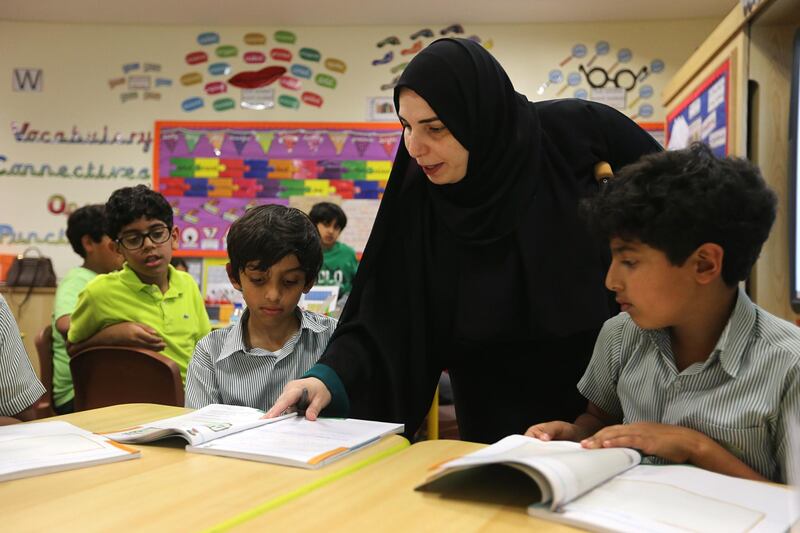Emirati private school teachers in Sharjah are to be paid the same salaries as those working in government schools.
Authorities said the move was aimed at encouraging more local talent to join the private sector.
Earlier this year, the emirate announced the 'I'm a teacher and proud' initiative as part of plans to boost staff enrollment.
So far, 45 Emirati teachers have been hired to teach Arabic and Islamic studies. All recruits will undertake a one-year teaching course before starting.
"They have been appointed following a series of careful interviews," said Dr Muhadditha Al Hashimi, the head of Sharjah Private Education Authority.
“Their careers will kick off with a course designed to the highest educational standards that will be offered by experts from the University of Sharjah.”
Education authorities have in recent years attempted to boost the numbers of Emirati teachers working in private and government schools.
Figures were not available for Sharjah but data from the Abu Dhabi Statistics Centre for 2018-2019 showed that 53.8 per cent of the 21,153 teachers at public schools in the emirate are Emirati.
However, the figure for Emirati teachers in private schools is substantially lower.
About 1.5 per cent of 50,869 teachers were Emiratis in the 2018-2019 academic year, up from 0.8 per cent the previous academic year.
Sharjah’s new teaching course will take place over two semesters at the University of Sharjah and will be paid for by the government.
During that time, students will be paid between Dh24,000 and Dh25,000 per month, although any teacher who decides to withdraw after completing 12 months will have to repay the tuition fees.
"This is the first of its kind job opportunity and our fresh graduates have to prove they deserve it through hard work and dedication," said Dr Tariq bin Khadem, chairman of Sharjah's human resources directorate.
Yaqoob Al Hammadi, a vocational adviser at Taryam Omran Secondary School in Sharjah, said salaries at private schools were between Dh3,000 and Dh10,000 a month.
“Teachers who have worked in private schools before joining us in the public sector spoke of salaries as low as Dh3,000 and Dh4,000,” said Mr Al Hammadi.
“Private schools should better invest in teachers by increasing their salaries, which will be reflected on the outcomes of the educational process.”







